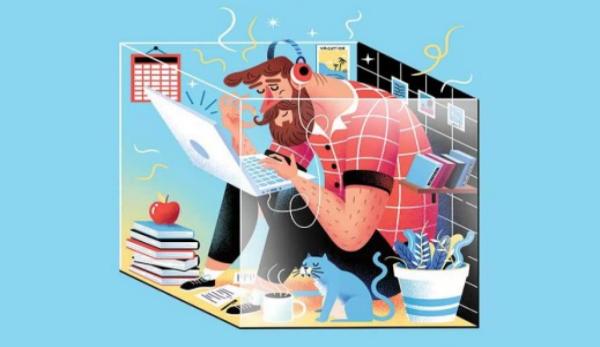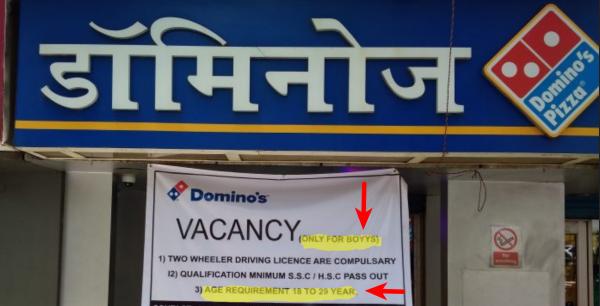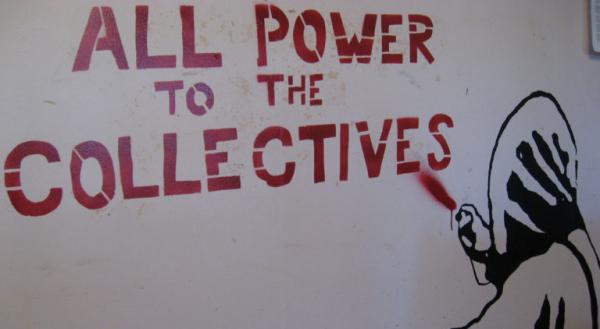Status of the gig economy, 2019
What’s wrong in the gig economy… if we want it for living as usual, at least.
Frustrated expectations, less hope, more (forced) egocentrism

<u><em><strong>CAPTION:</strong>
<a href="https://hbr.org/2018/03/thriving-in-the-gig-economy" target="_blank">Thriving... in the Gig Economy???</a>
</em></u>
The gig economy is hard work for low pay and coercion, and it is not improving: in 2018, many gig economy workers were earning half what they did five years earlier. This is one major reason why “this is the first working class in history in which the average level of education is above the average level of labor they can expect to obtain.” In turn, this forces people to survive only for themselves and their immediate families, building a new reality that someone else designs.
Increased concentration and inequality

In the same years when gig workers earnings were failing, online renting became 69% more profitable. Algorithmic management optimized for platform profitability replaces “free” markets (assuming they existed) with “data-driven oligopolies” that shift the power balance as never before. Wages almost never increase because of the resulting shortage of employers (or really different employers, at least).
Partnership jokes

Can partners ever... STRIKE???
</em></u>
Many gig workers in app-based businesses continue to be classified as independent contractors, just like in 2015. This year, Amazon added joke to insult when (just like other “Silicon Valley tech titans”), told its employees to please become even more precarious than they already are.
Gig ageism and patriarchy

Only young males, please.
</em></u>
Maybe all gig economy workers must indeed become all glamorous “business partners”. Even in such a glorious vision of equals, however, some business partners may be more equal than others. Everywhere, and in all directions.
Robotized people

Gig economy platforms fragment labour and make it invisible. Rather than replacing humans with robots, this makes humans just as anonymous and interchangeable as robots.
Class 2.0

Much of the gig economy is not even among peers, but consists of “being a Rich Person’s Servant”. Just worst than before. The maids of yore had no protection of the law, but were at least “integrated into family life in way unthinkable in the gig economy”. Today, class relationships are mediated by aseptic transactions inside apps, not household life. This transforms haves and have-nots into “the demanding and the on-demand”, who are a new form of “distributed servants”.
Wasteful, fake innovation

The Uber model bulimically devours energy, even where it “reigns supreme, and just cannot work in many sectors, because it “completely underestimates the human factor”.
These companies have “disrupted” so much but for what, exactly? “Is this really the best and highest use of Silicon Valley innovation?"
No unions replacements yet

All power to the collectives? WHICH collectives?
</em></u>
Joining traditional unions is just “deeply counter-cultural for many millennials”. Then again, even traditional unions are too “deply counter-cultural” in the reality of today. Attempts to reinvent the very concepts of unions and workers self-organization are present in many ways, from “finding new forms of leverage” to “freelance collectives”. But nobody knows yet if they will work. Or if they should work.
Thumbnail Image source: Robot Proletariat review
Who writes this, why, and how to help
I am Marco Fioretti, tech writer and aspiring polymath doing human-digital research and popularization.
I do it because YOUR civil rights and the quality of YOUR life depend every year more on how software is used AROUND you.
To this end, I have already shared more than a million words on this blog, without any paywall or user tracking, and am sharing the next million through a newsletter, also without any paywall.
The more direct support I get, the more I can continue to inform for free parents, teachers, decision makers, and everybody else who should know more stuff like this. You can support me with paid subscriptions to my newsletter, donations via PayPal (mfioretti@nexaima.net) or LiberaPay, or in any of the other ways listed here.THANKS for your support!